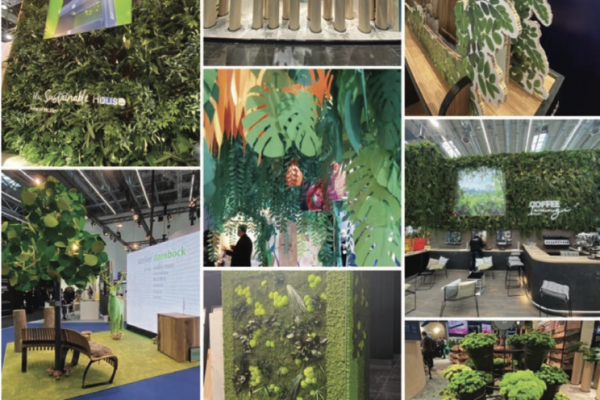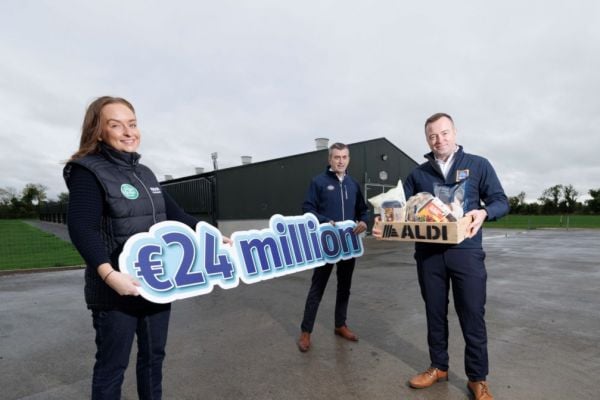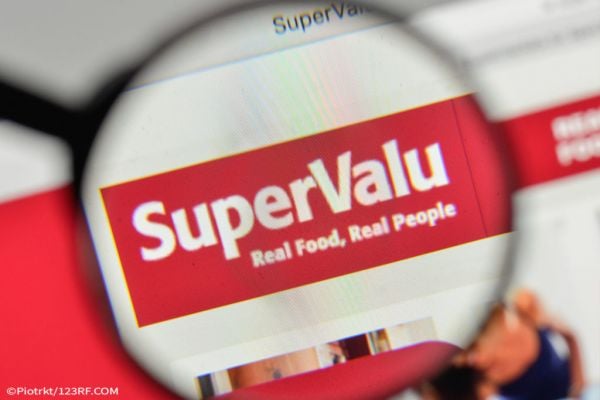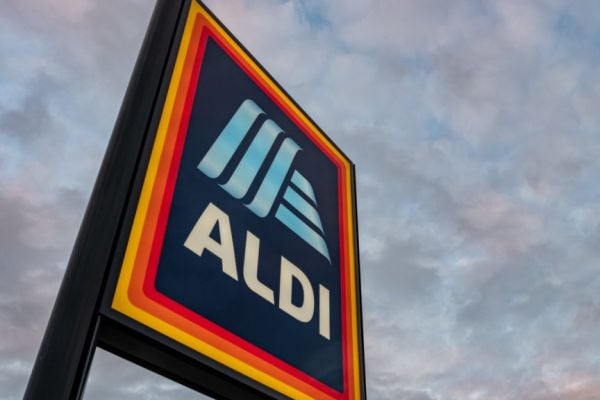A half-day seminar hosted by POPAI UK & Ireland in Dublin on 2 November focused on best practice in sustainability throughout the entire lifecycle of display.
The conference heard from forward- thinking industry professionals covering all stages of point of purchase, from inception through to the design and manufacturing stages. The seminar shared highlights from recent research into compliance and sustainability, including industry best practice, as well as benchmarking and trends information within the remit of sustainable design.
Martin Kingdon, insights and sustainability manager with POPAI UK & Ireland, kicked off his presentation by telling delegates that “POPAI UK & Ireland is committed to reducing the display industry’s impact on the environment by working collaboratively throughout the value chain and offering a range of products and services to facilitate continuous improvement.”
How to get started
According to Kingdon, POPAI UK & Ireland has noticed a strong surge in interest in sustainability over the last few years, but that has also been accompanied by a general sense of confusion among brands and retailers as to how to start their retail sustainability journey. “We have a part to play, as do suppliers to the industry who have the technical knowledge on materials and processes, which may make a significant difference,” he said. “Our Sustainability Masterclass is starting to generate real interest and usage. Hopefully, the first one of these will be happening shortly with a brand client in Ireland.”
POPAI UK & Ireland has been working on sustainability in retail and display since 2010. “In recent years, the need has become far more urgent, with retailers and brands responding to pressure from governments, society and shoppers to be seen to be taking action on the environmental impact of everything they do, including in the retail world,” he said. “Measurement of environmental impact has not been easy particularly for Scope 3, which covers supply chain.” This is where POPAI’s global eco- design indicator tool comes in.
Eco-design indicator tool
The Sustain® eco-design indicator tool has been developed to measure the environmental impact of the design supply chain, materials, processes and end-of-life. “This is an independent indicator tool that measures the environmental impact of display, retail and sales promotion items,” he says. “It works to lifecycle assessment principles using internationally recognised data. Sustain® allows for the measurement of CO2e (CO2e per unit type, CO2e per kg of display and CO2e per week of display life), water from materials, recycled content, and end of life metrics for a range of retail items, including fixtures, displays, sales promotion items, and clothing,” he said. “Up to six versions of a project may be compared, using different materials, processes, manufacturing locations etc. Sustain® has been adopted in the UK by retailers such as Boots the Chemist and Curry’s, as well as by brands such as L’Oréal, who have asked their suppliers to take Sustain® licences, so that all their displays and other relevant items may be measured.”
POPAI collates the results from all their suppliers, and reports on a range of metrics, including total CO2e from all displays produced in a period, with comparisons to previous periods. POPAI also has benchmark data for certain display types, which is globally unique. “There are many reasons why retailers and brands should use the Sustain® tool,” he says. “Chief among these are the fact that clients need to understand the environmental impact of their displays and other retail items, targets are being set for the improvement in total company impacts, and agencies need to be able to easily compare different options for the same units.
“Historically, display and retail has not been measured, but legislation is coming to mandate company reporting of environmental impact. A raft of important legislation is on the way and the list is growing, so the industry needs to be informed. So far, a total of 18,500 displays from over 450 brands in 35 countries have gone through Sustain®, and the expectation is that this will only grow as more clients become aware of the need to measure, and reduce, their environmental impact from display and retail."
Delegates also heard from Steve Lister, global head of sustainability for POPAI UK & Ireland. who also operates a sustainability consultancy for global brands and retailers. Steve has over 20 years' experience working in sustainable print, POS and displays. His presentation focused on the evolving sustainability landscape and some of the key trends that are coming through.
Sustainable display trends
Euroshop 2023 showcased a number of significant sustainable display trends. 'This was the year that the retail world finally woke up to embracing sustainability within their retail environments and there was an overwhelming array of new designs," he said. "This was also the year that retail displays moved towards a more sustainable design, look and feel. For example, we are seeing a big movement towards the use of metal fixturisation with interchangeable sides and headers - Albert Heijn and Jumbo moved to this type of display years ago and they have got rid of their cardboard displays.
Wooden slotted displays is another display type that we will see more of over the coming years. An increasing number of big brands, such as Lipton's Tea, Mars and Boots, have already embraced this trend. In addition, there is now an extensive network of sustainable and alternative material suppliers, all focusing on new fibre-based and recyclable materials."
Read More: 9 Sustainability Trends To Watch Out For In Irish Supermarkets In 2024
Sustainability trends
Steve shared what he regards as the top-three sustainability trends among retailers and brands in 2023 and 2024. "There is a big focus on materials - some are 'glorified' and some are 'demonised,' while some are misunderstood," he said. "There is also a big focus on the 'end of life' recyclability of materials and it is your responsibility to know how your materials rate in this regard. We are also seeing brands and retailers creating guidelines for sustainability for design, materials and production." When it comes to consumers, the top three trends that he has identified for 2023 and 2024 are eco labels, greenwashing and the 'new normal'.
"Customer demands are growing for sustainability and environmental logos specially created for print," he said. "There are currently 146 eco-labels across 199 countries. Also, customers are waking up to 'greenwashing,' so it is important that brands and retailers don't make claims that they can't substantiate. 'The third trend, the 'new normal', refers to the fact that sustainable products are now big focus and shoppers are willing to pay for them.
Regarding suppliers, he said that they are designing with 'end of life in mind - recycling, refurbish or re-use is now being adopted. Carbon foot printing is becoming expected or mandated for suppliers, as is the transparency of materials, inks, production methods and end of life recycling. Steve Lister urged delegates to understand the sustainable challenges and goals of their business and their clients, and to understand how the latest sustainability trends will impact them moving forward. "Collaboration is the key to sustainable success." he said. "You won't be able to do this on your own.
Categories scoring high on sustainability
Colm Rooney, VP global client development and country manager, Ireland at Shopper Intelligence, looked at how Irish grocery shoppers' general attitudes towards, and perceptions of, sustainability and the environment have been changing over the past five years. His presentation also revealed the extent to which perceptions and attitudes towards sustainability differ by product category.
Shopper Intelligence's The Irish Grocery Shopper
2023 Insights report reveals that, of the 18 shopper satisfaction metrics, sustainability has the lowest satisfaction score and has had for the last six years.
However, it is the only one of the 18 that is increasing in importance year on year. In fact, authenticity, traceability, Irishness and sustainability are all increasing in importance for Irish shoppers.
The report revealed the top ten grocery categories in which Irish shoppers think 'environment' is most important. They are: Brandy/Cognac, Facemasks, Sandwiches, Chilled Vegetarian, Cream Liqueur, Vegan/Plant Based Food, Fresh Lamb, Baby Toiletries, Stone Fruit and Boxed Chocolates.
'The Shopper Intelligence research also revealed that Irish shoppers' satisfaction levels with the Irishness, traccability, authenticity and sustainability of products were increasing. The report revealed the top ten categories where Irish shoppers are most satisfied with sustainability. They are: Brandy/Cognac, Chilled Vegetarian Food, Root/Green Vegetables, Vegan/Plant Based Food, Cream Liqueur, Potatoes, Fresh Herbs, Eggs, Mushrooms and Boxed Chocolates.
Read More: How Important Is Sustainability To Shoppers?
What sustainability means
What do Irish shoppers mean when they think about sustainability? Well, the Shopper Intelligence research shows that 22% think of recyclable packaging, 15% think of the manufacturing process, 12% think of less packaging, 11% think of Fairtrade principles, 10% think of animal welfare/ethics, nine per cent think of reducing waste, while carbon footprint and food miles are on 6% each.
Sustainability also means different things for difterent categories. He asked retailers and brands if they knew what the number one sustainability message should be for their category.
Paying more
When asked if they would pay more for sustainable products, 57% of shoppers said yes, 28% said no, and 15% said they didn't know. The Shopper Intelligence research also revealed that this depends on the category, with shoppers most likely to pay more for sustainability in the following categories:
Chilled Vegetarian Food, Vegan/Plant Based Food, Frozen Desserts, Boxed Chocolates, Stomach Remedies, Stone Fruit, Cream, Facemasks, Pre-Prepared Speciality Cheese and Brandy/Cognac.
Finally, when it came to shoppers' satisfaction levels with sustainability by retailer, there was some good news for SuperValu, as the brand achieved the number-one satisfaction score. The Shopper Intelligence research also revealed that sustainability is more important to a SuperValu shopper than it is to shoppers who shop at other retailers.
Other speakers at the conference included Peter Rigney, retail design consultant and owner of Rigney Forge, Ian Scouler; managing director; Material Solutions, Conor Callinan, sales manager at Display, a part of the Smurfit Kappa Group, and Steve Green, founder of Quagga Design. A further report on the conference, including on these speakers presentations, will be featured in the December edition of Checkout.








